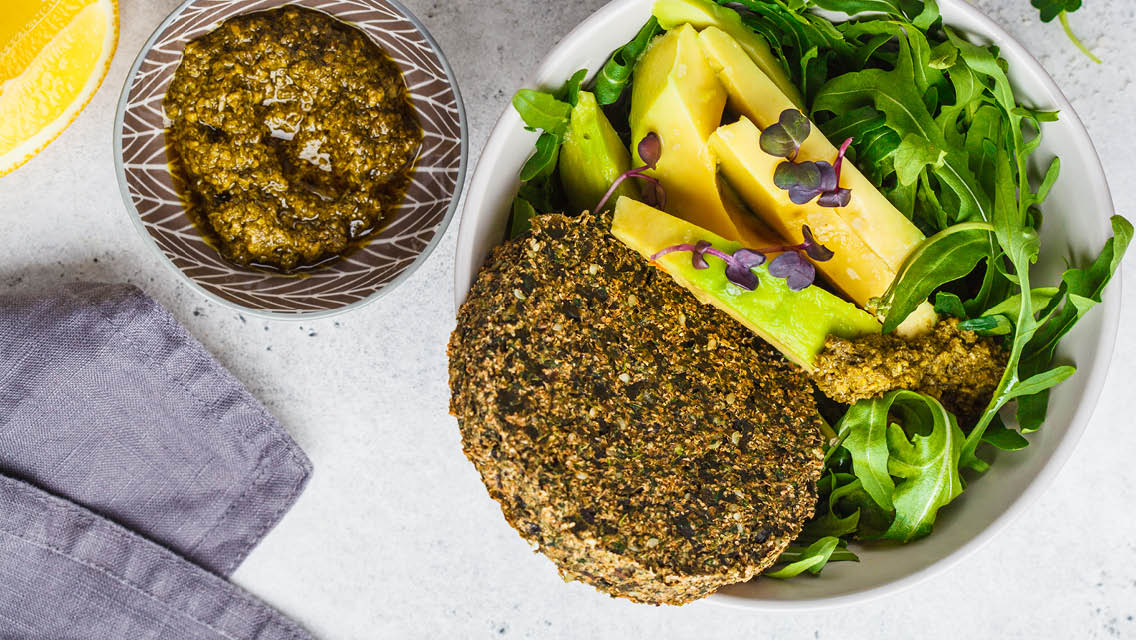The carbon “hoofprint” of a meat-based diet is not ecologically sustainable, many experts argue. Others praise the health benefits of plant-based diets. Enter the latest faux-meat producers, such as the widely touted Impossible Foods and Beyond Meat.
Thanks to plant-based ingredients and a message of sustainability, these brands are being gobbled up by consumers — and investors. But, as the New York Times reported recently, some critics and financial analysts question whether these products are indeed more sustainable than meat, “because the companies are not transparent about their emissions.”
The answer, it seems, is complex.
The Times quotes an investor-tracking firm that gives Beyond Meat a zero rating when it comes to sustainability measures. Another analyst rates it a “severe risk,” placing it environmentally on a par with beef- and chicken-processing conglomerates.
The reason? The alternative-meat makers have yet to prove their sustainability.
“The dominant narrative from the plant-based industry and the venture capitalists supporting it is that these companies are better for the environment, they’re better for health, they’re better for this, and better for that,” Ricardo San Martin, PhD, research director of the University of California, Berkeley’s alternative-meats program, tells the Times. “But it is really a black box. So much of what is in these products is undisclosed.”
“Eating plants is fundamentally more efficient than growing plants to feed animals and eating those animals.”
Still, the fact that these companies haven’t produced reports to satisfy certain critics doesn’t necessarily mean they’re hiding anything. Impossible Foods did publish an extensive online “impact report” in 2019. And Beyond Meat promises to release a comprehensive greenhouse-gas analysis in 2022.
Several independent studies have given the meatless meats green stars. Analyzing eight products in 2019, the nonprofit Good Food Institute wrote that “eating plants is fundamentally more efficient than growing plants to feed animals and eating those animals.” It concluded the faux meats were a “pathway to a sustainable food supply.”
The debate brings into focus larger issues around the sustainability of the standard American diet — in terms of both the environment and our health. For years now, scientists, nutritionists, and futurists have argued in countless forums, as this 2014 white paper in Oxford University’s American Journal of Clinical Nutrition states, that “plant-based diets in comparison to diets rich in animal products are more sustainable because they use many fewer natural resources and are less taxing on the environment.”
Or conversely, as the New Yorker noted in a 2019 profile of Impossible Foods, “Meat is essentially a huge check written against the depleted funds of our environment.”
Some critics point out, however, that faux meats are an ultraprocessed food, which nutritionists decry. And the ingredients include a heavy emphasis on soybeans, which are commonly grown as a genetically modified monocrop, creating a carbon footprint of their own. Plus, eating too much soy can cause health problems. (For more on soy, see “The Pros and Cons of Eating Soy“.)
At the same time, meat producers are fighting back, advocating for laws against what the National Cattlemen’s Beef Association calls “false and deceptive marketing” of “fake meat.” Various lobbying efforts are pushing for the FDA and several state legislatures to require that plant-based meat carry labels stating “imitation” — or to not term their products “meat” at all.
What’s often overlooked in this tit-for-tat battle is the ethical concerns involved in raising animals in concentrated animal-feeding operations and feedlots just for slaughter (learn more at “The CAFO Conundrum“).





This Post Has 0 Comments